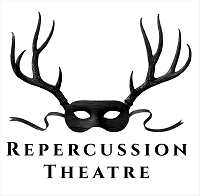Literature’s most iconic hymn to heterosexual passion, here given the subheading Love is Love, is now an out and proud lesbian love story.

Repercussion Theatre rehearses Shakespeare-in-the-Park production of Romeo & Juliet in Montreal on Tuesday ,July 3, 2018. From left: Shauna Thompson, Adam Capriolo and Michelle Rambharose. ALLEN MCINNIS / MONTREAL GAZETTE
The star-crossed lovers get the cross-gender treatment in the latest production from Shakespeare-in-the-Park specialists Repercussion Theatre, now into their 30th season. Their Romeo and Juliet, which opened on Thursday and tours around Montreal (and beyond) to Aug. 8, sees Shauna Thompson playing the lovelorn swain to Michelle Rambharose’s Juliet.
It shouldn’t be a complete shock to the system, given the long Shakespearean tradition of mixing it up gender-wise, whether it be Elizabethan boy players playing female roles, the Cushman sisters playing Romeo and Juliet in the 19th century, or the gender-fluid free-for-all that is current Shakespearean practice (which Amanda Kellock has embraced wholeheartedly since taking over Repercussion as artistic director, most notably with her all-female version of Julius Caesar in 2016).
What makes this Romeo and Juliet that bit bolder, though, is that Thompson’s Romeo isn’t a man who happens to be played by a woman, but a woman in love with another woman. Literature’s most iconic hymn to heterosexual passion, here given the subheading Love is Love, is now an out and proud lesbian love story, a circumstance that this production frames as a happy accident.
“What we’re establishing in a prologue is that this is a troupe of actors that has been performing the same piece for years and years,” says Thompson in a telephone conversation with the Montreal Gazette. “What happens is that we draw straws to decide which parts we’ll be playing that evening. In reality, we as actors do know. It’s just an illusion.”
Thus in the ensuing “chance” allocations, Anton May and Nadia Verrucci get to play, respectively, Lady and Lord Capulet, Cara Krisman plays Romeo’s cousin and boon companion Benvolio, while several actors still match up with their biological genders — Adam Capriolo as Mercutio, for instance, and Gitanjali Jain as Nurse.
Repercussion’s radical recalibration of the play will no doubt have audiences doing double takes at some of its more familiar lines, for instance Romeo’s plaint that Juliet’s “beauty hath made me effeminate.”
“There are definitely moments that we’ve reinterpreted,” Thompson agrees. “For instance, when Benvolio asks ‘Tell me in sadness, Romeo, who is it that you love?’ and Romeo replies ‘In sadness, cousin, I do love a woman.’ Now that we’ve cast two women, it’s more than just confessing to being in love, it’s coming out to my cousin. So, yeah, some lines have definitely taken on a different meaning.”
The most prominent change in the script is in the use of pronouns. Thompson admits it took her a while to get used to referring to her character as “she,” but in our conversation she unhesitatingly makes the adjustment.
“The first time that we meet Romeo, she’s depressed over Rosaline,” Thompson says. “She’s fully aware that this is a woman who hasn’t reciprocated her feelings. When she finally meets Juliet, she approaches her and flirts with her, and when this woman responds positively, it’s a very big thing for her.”
For all the perceived homoerotic joshing in this and in other plays by Shakespeare, the fact remains that Shakespeare was writing at a time when homosexuality was punishable by death (although the Elizabethans, like Queen Victoria, took the line that the very existence of lesbianism was so improbable that they didn’t bother to pass any laws against it). With this in mind, one wonders how the other characters in the play respond to this relationship between Romeo and her Juliet.
Rambharose, also speaking to the Montreal Gazette by phone, agrees that the same-sex nature of the relationship potentially brings it to “another level of transgression. Not so many of the other characters know about the relationship while Juliet’s alive. Paris (Juliet’s parentally-approved paramour) never finds out about it, and neither do her parents. But the characters that do know, like Benvolio, the Friar and the Nurse, are very accepting, just as if it were any hetero relationship. As an actor, I keep it in the back of my mind that if Juliet’s parents were to find out, their reaction would be very homophobic.”
What matters, of course, is what the audience will make of the relationship and the liberties Repercussion is taking with this most beloved of love stories.
“Personally, I haven’t thought too much about that, only because I don’t want to psyche myself out too much,” Thompson says. “I’m sure there will be patrons who are offended or who don’t want to see it, and that is totally within their right. If they don’t want to see it, they can leave.”
Indeed they can, and without incurring any financial loss in the process. As with all Repercussion productions, attendance is free, with donations being collected at the end of each performance. Perhaps those moved to flouncing off through the undergrowth halfway through the show can use the money they’ve saved to send a letter of complaint to Verona’s city council: it recently opened up the Casa di Giulietta balcony, said to be the inspiration behind Romeo and Juliet, for ceremonies for same-sex couples seeking civil unions.
Romeo and Juliet: Love is Love plays to Aug. 8 at various outdoor locations around Montreal. Performances are free, with donations taken. Call 514-931-2644 or visit repercussiontheatre.com
***
If Romeo and Juliet’s love is heavenly while it lasts, hell is other people for eternity in Jean-Paul Sartre’s No Exit (Huis clos), which is playing in English at Mainline Theatre, 3997 St-Laurent Blvd., to July 8. Independent company Snowglobe Theatre presents an in-the-round version of the 1944 existential classic about three recently deceased and damned characters who discover that their devilish tormentors are closer to hand than they expected. Tickets are $15. Call 514-849-3378 or visit mainlinetheatre.com
